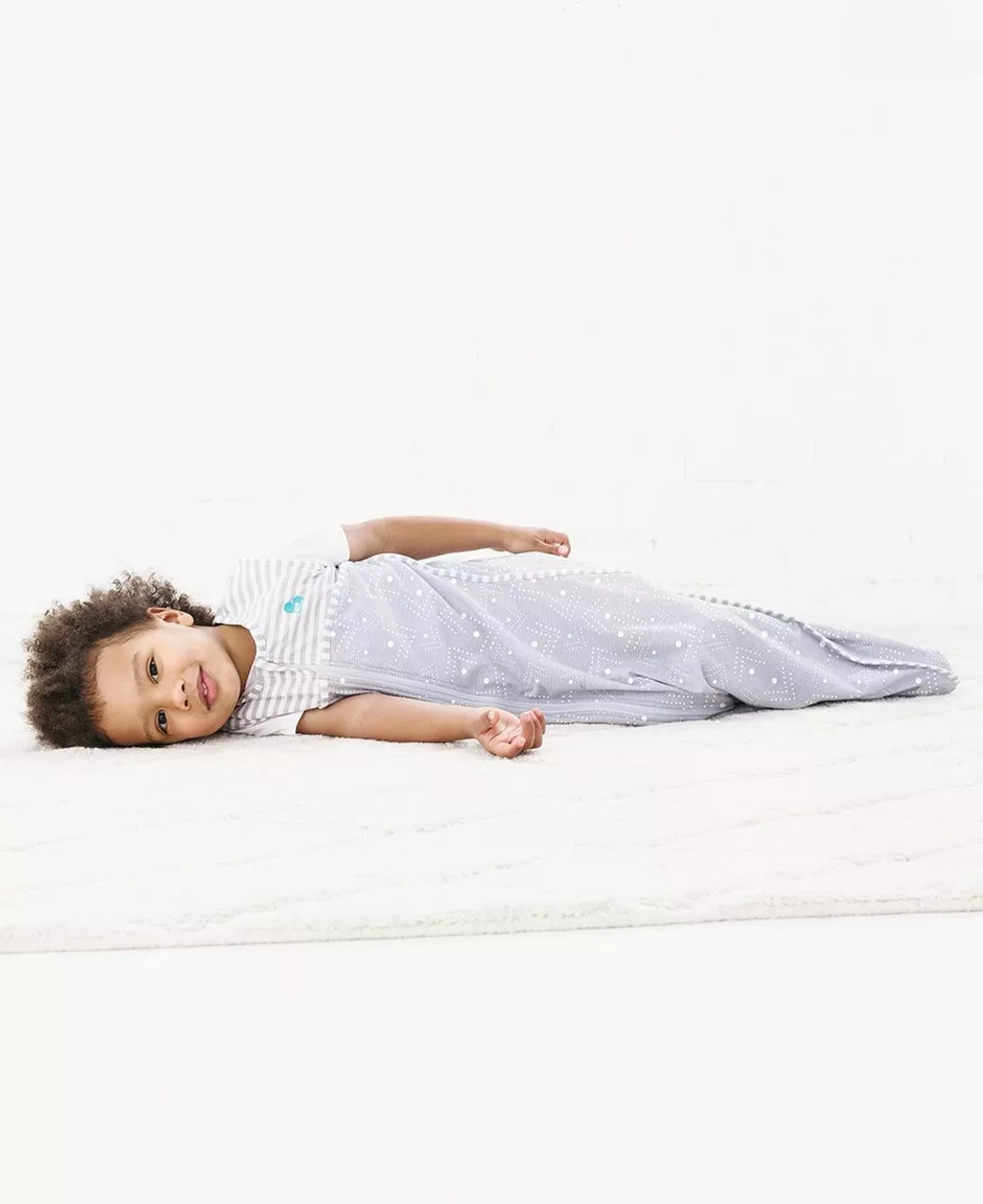Daylight Saving: How to adjust your baby’s sleep routine
Like adults, a child’s circadian rhythm can be affected by the clocks going backwards or forwards. But there are simple tips and tricks that parents and caregivers can follow to ensure the whole family gets a good night’s sleep.
From preparing your baby for daylight saving to the importance of a consistent bedtime routine, find out everything you need to know below.
How to prepare your baby for daylight saving
There are simple steps you can take to minimise the effect daylight saving will have on your little one.
Gradually reset their body clock
Start shifting your child’s bedtime and wake-up time by 10 minutes every day in the week prior to the clock change. That way, when daylight saving starts or ends, their bedtime is already at the ‘new’ time. They should also wake up at an appropriate time too.
For example, when daylight saving starts (clocks go forward by an hour), if your baby's bedtime is usually 7pm, on the Tuesday before the clocks change, put your child to sleep at 6:50pm. On Wednesday put them to sleep at 6:40pm. On Thursday, at 6:30pm, on Friday at 6:20pm, on Saturday at 6:10pm, then on Sunday put them to sleep at the ‘new’ 7pm.

When daylight savings ends (the clocks go back an hour), if your baby’s bedtime is usually 7pm, on the Tuesday before the clocks change, put your child to sleep at 7:10pm. On Wednesday, put them to sleep at 7:20pm. On Thursday at 7:30pm, on Friday at 7:40pm, on Saturday at 7:50pm, and finally, on Sunday put them to sleep at the 'new' 7pm.

Keep their sleep space calm
It might be difficult for your child to sleep when it’s still light outside. Keep your little one’s room as dark as possible to recreate bedtime conditions. Blackout blinds or curtains will help to achieve this. Always follow safe sleep guidelines.
Stick to a consistent routine
A consistent bedtime routine will help to establish good sleep habits for years to come. This might look like a bath, baby massage, reading a book, or singing a lullaby. Winding down before bed will prevent your child from becoming too energetic before it’s time to sleep. Find what works for you and your family.
Head out into the sunshine
If you can, head out into the daylight for a walk. This is especially beneficial in the morning or late afternoon. The sun exposure will help to rest your baby’s body clock and will in turn, help them to regulate their sleep pattern again. Always use sun safety guidelines.
Don’t neglect their naps
Don’t be afraid of naps. Sticking to their usual naptime routine will help to maintain structure. Just ensure the naps are not too long and not too close to their bedtime.
Common parent FAQs on daylight saving and baby sleep
How long does it take for your baby to adjust to daylight saving?
Every child is different. Newborn babies are not affected by daylight saving, as their sleep cycles have not yet matured so they don’t understand the difference between night and day. However, young children can take up to two weeks to adjust to daylight saving.
Why is my baby waking up at 5am after daylight saving?
Like adults, a baby might wake up earlier than usual as daylight saving can affect their circadian rhythm. Every child is different, and some will be affected more than others.
How will the clocks going back affect my baby?
Like jetlag, a child’s circadian rhythm can be affected by the clocks going back. Following a consistent bedtime routine is crucial to ensure your child has a good chance of getting to sleep on time. Keep their sleep space dark, quiet, and calm.
How will the clocks going forward affect my baby?
Like jetlag, a child’s circadian rhythm can be affected by the clocks going forward. Following a consistent bedtime routine is crucial to ensure your child has a good chance of getting to sleep on time. Keep their sleep space dark, quiet, and calm.
Does daylight saving affect toddler sleep?
Yes, daylight saving can affect toddler sleep. Every child is different, but the clocks changing can negatively impact their internal body clock.
At Love To Dream™, we know that every little one is different, and we’re committed to helping you to find the right solution for your family. With you at every step, Love To Dream™ believes today’s little dreamers are the shapers of tomorrow. For further advice from our experts, visit our Sleep Library.





























